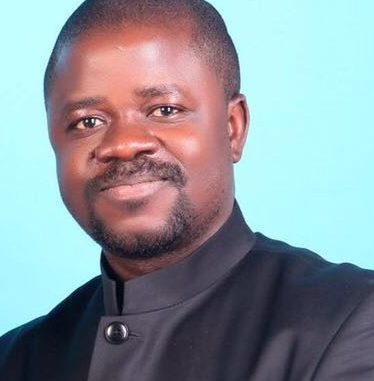
John Baimba SESAY-CHINA
Good governance ensures equal participation of citizens, in the exercise of the state’s powers and responsibilities and in its management of political, social, and economic affairs, argued Laura McGrew, ET EL, in a work titled ‘Good Governance from the Ground Up: Women’s Roles in Post-Conflict Cambodia’. Women have a strategic role in promoting good governance
And which eventually calls for the need empower them. Empowering women is a major governance issue which goes in tandem with the dictates of participatory democracy.
Empowerment for women obliges a crosscutting approach and one which addresses the multiplicity of social structures that govern women’s lives, writes Kush Kalra, a practicing Indian lawyer. He sees women empowerment essentially as women having the power or capacity to “regulate their day- to- day lives in the social, political and economic terms -a power which enables them to move from the periphery to the centre stage”
Gender equity is itself consistently linked to indicators of good governance like participatory politics, where everyone is given opportunities to voice his or her views and concerns in policy formation and decision making. In fact, Laura McGrew et el, referenced above agreed with such submission. For them, an active civilian population does not only ensure ownership of a democratization process among citizens who have to live with its consequences “but also demands greater accountability, thus promoting good governance. The 1995 Beijing Declaration of the Fourth World Conference on Women concluded that “women’s empowerment and “their full participation on the basis of equality in all spheres of society, including participation in the decision-making process and access to power, are fundamental for the achievement of equality, development and peace”
Sierra Leone continues to make progress in the promotion of women and gender related issues. The appointment of women to key governance positions gives an apparent indication of the seriousness of the government in meeting those core governance pillars. Pillar 8 – of the country’s development roadmap-the Agenda for Prosperity acknowledges the challenges gender related issues face. It states, that “Institutionalized gender inequalities are exacerbated by discriminatory customs, particularly with relation to marriage, property rights and sexual offences; women and girls have limited access to education, justice, health care, employment, and decision making.” With this in mind, the president and government have remain committed to gender equality and women’s empowerment, There has been a number of policy declarations and legislations enacted.
The AfP-the growth path has a goal of wanting to “empower women and girls through (a) education, reducing socioeconomic barriers and supporting formal and non-formal education; (b) increasing their participation in decision-making in public, private, and traditional institutions, and access to justice and economic opportunities; (c) strengthening prevention and response mechanisms to violence against women and girls; and (d) improving the business environment for women, with access to finance and capacity development.” Increasing women participation in decision-making in public, private, and traditional institutions has stood the test of time under the presidency of Ernest Bai Koroma. His recent appointment of more women into cabinet positions has positioned the country’s gender credentials into the limelight of international recognition. It has also in the process, challenged the women to not just perform, but to help make a difference in our development drive.
Sierra Leone currently has close to a dozen of female Government Ministers; Diana Konomani-Lands, previously at local government; Sylvia Blyden(Doctor)-Social Welfare, Gender and Children’s Affairs; Elizabeth Mans-Fisheries and Marine Resources; Nanette Thomas-Political Affairs; Isata Kabia-Foreign Affairs as Deputy 2; Madina Rahman-Health as Deputy 1; Christiana Thorpe-Education as Deputy 1; Neneh Turay as Deputy, Social Welfare; Zulainatu Cooper as Deputy 2, Health; Kadija O. Sesay as Deputy At Works and Infrastructure.
This adds to the list of women in other departments and agencies and embassies; the first female Chief Justice in the country -Umu T. Jalloh, now in Ghana as our High Commissioner; the country’s female Solicitor- General (Martina Koroma); the first female Commissioner of the revenue generating agency-Haja Kallah-Kamara, first female head of the Sierra Leone Road Transport Authority -Sarah Bendu, Administrator & Registrar General -Mariama Seray Kallay; the first female head of country’s Environmental Protection Agency-Madam Jatou Jalloh. At the ambassadorial level, we now have women both as Ambassador and Deputy in Guinea, same as in Senegal where we have a female Ambassador as in Ghana and China where a female is Deputizing, a female Auditor-General Lara Taylor-Pearce; the country’s Director-General in the foreign ministry; and the first State Chief of Protocol-Madam Rasie Kargbo.
Go beyond their appointments and look at how accomplished they have been in society especially in the last close to a decade. Lara Taylor-Pearce has made a name in the country, given the nature of her job, but primarily given the political will she is enjoying from central government. She has been an exceptional lady at audit service; Haja Kallah Kamara has impacted on the country greatly in her revenue collection efforts, accounting for over 70% revenue of total government spending and collecting trillions of Leones annually now. No doubt her commitment to duty and performance remains intact. Nanette Thomas, going to political affairs ministry has done her best in steering the state of affairs at the country’s behavioral change secretariat, together with Dr Ivan Thomas. Change of attitude is a process, not an event and in the last few years, the two have had their heads together in trying to change people’s attitudes. Nanette Thomas’ appointment to head the country’s political affairs ministry is indicative of the president’s trust in her sense of performance.
Dr. Sylvia Blyden has also done a lot especially in defending national issues. Going to social affairs ministry is expected to inject a new sense of direction with optimal performance output expected. This is more so following the recent fracas between the then minister and deputy. Madina Rahman, I came to know during the Ebola era. She makes a fine lady deputy at that ministry and would be expected to keep on with her hard work and dedication to national service. She is, from my assessment a smooth operator that is result oriented. Diana Konomani represents a greater portion of the carder of successful women in the political sphere. Smart, bold and hardworking, her transfer to head the ministry of lands from local government would definitely bring in dynamism and impressive results. It is just a matter of time. The list goes on and on.
Overwhelmingly, President Koroma has placed gender issue top on his governance era, as compared to any other government in contemporary Sierra Leone. He has demonstrated that women are core to managing state affairs. One would only wish them all success for they will definitely live up to the challenge they now face in executing their duties in line with the general expectation of the public.




